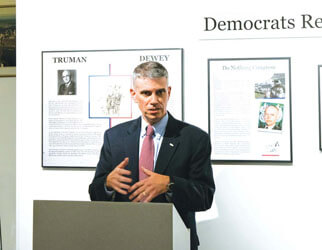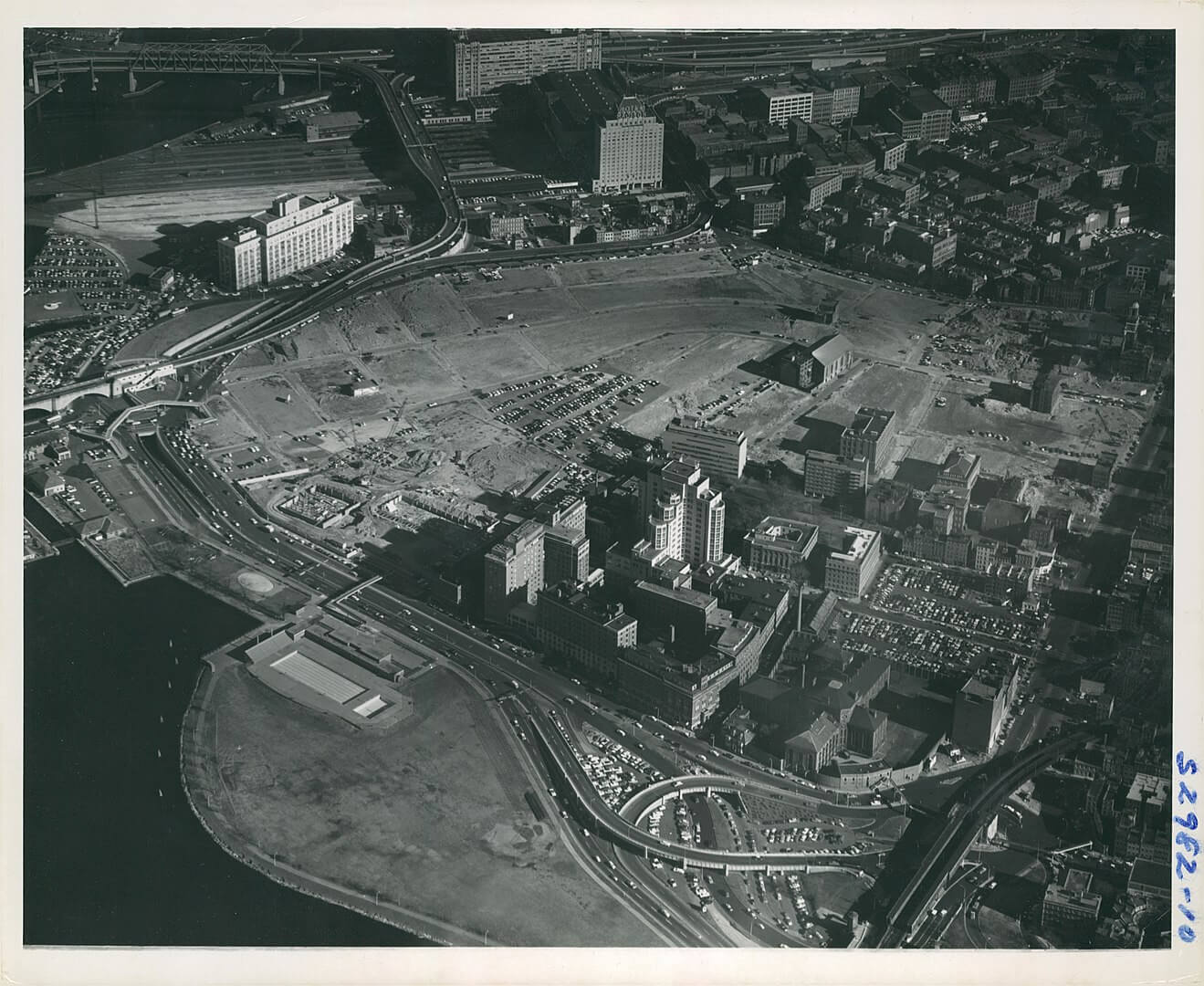The BRA's Apology to the West End
In 2015, Brian Golden, director of the BPDA, gave the City of Boston’s formal apology for the destruction of the old West End. He delivered the apology in a speech at The West End Museum, and his words continue to hold meaning for current debates about urban renewal powers in the city.
Brian Golden, the current director of the Boston Planning & Development Agency (BPDA), apologized for Boston’s destruction of the old West End in a speech at The West End Museum on September 24, 2015. That year, The West End Museum collaborated with BPDA for two exhibits: “Dewey Defeats Truman/The Housing Act of 1949” and “The Future of Urban Renewal in Boston.” Golden officially apologized on behalf of the Boston Redevelopment Authority (BRA) for the agency’s declaration of the old West End as a slum in a 1957 project plan, and the subsequent demolition of 41 acres of the ethnically diverse, working-class neighborhood in 1958 and 1959. The director’s apology had a public relations objective because the BPDA was negotiating with the Boston City Council for a ten-year extension of its urban renewal powers. In March 2016, city councilors voted 10-3 for the extension after negotiating for six years’ extension instead of ten, and for the agency to agree to regular public oversight.
In his speech at The West End Museum, Golden said, “The BRA of today in no way condones the destruction of neighborhoods and the displacement of residents that happened in urban renewal’s wake. And I want to offer my heartfelt apology on behalf of the agency to the families of The West End that were affected.” He acknowledged that the community has lived with the lingering consequences of history, continuing that, “Although the destruction happened decades ago, the scars still remain. We haven’t forgotten. We have learned.” Some residents of the old West End found these words were thoughtful but long overdue. Old West Ender Jim Campano, who co-founded The West End Museum, said of Golden’s apology that “It was good to hear, but it was too late to be of any use. It had no real effect. All these years, they never said they were sorry they did it, that it was morally wrong.” Still, Campano believes the apology was sincere and momentous. Other residents, such as Louise Thomas, said that the apology rang hollow when the BRA’s Garden Garage development planning months later did not respect the voices of West End community members on the Impact Advisory Group (IAG). Many residents walked out of the November 4 meeting the BRA held with the IAG because the Authority approved a proposal it previously rejected after the residential company involved made very minor alterations.
The BRA changed its name to the BPDA in 2016, but city leaders critical of the agency argued that re-branding cannot put the history of the old West End in the rear view. Councilor at-large Michelle Wu argued in a 2019 report that “the BRA by any other name is still the agency that demolished the West End, evicted thousands of residents, and threatened other neighborhoods with a similar fate.” BPDA officials insisted that the agency has changed more than its name following its destructive urban renewal projects of the 1950s and 1960s. BPDA senior urban designer and architect Corey Zehngebot said the day of Golden’s apology that, “What happened in the West End in 1957 is not something that could ever happen again. The definition of urban renewal is that it’s a strategy for redevelopment and revitalization, and that meant one thing in 1957 but it means quite another today.” The BPDA’s urban renewal powers will last through 2022, and complicated debates about a new extension are certainly on the way. Golden’s apology was memorable not because the BPDA earned the right to ‘forgive and forget,’ but instead because of what Golden’s words meant to former residents of the West End.
Article by Adam Tomasi, edited by Sebastian Belfanti
Source: The West End Museum; Boston Globe, “BRA director offers formal apology for West End’s demolition” (September 28, 2015; ProQuest); “Fixing Boston’s Broken Development Process: Why and How to Abolish the BPDA” by Michelle Wu (2019); Next City; WBUR (2015 and 2016); North End Waterfront









